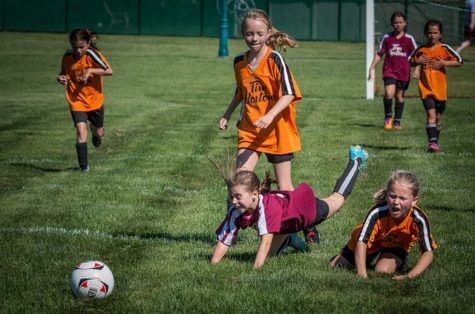
BASEL, Switzerland — A new study by sports scientists at the University of Basel found that a warm-up program designed specifically for children chopped the odds of a player suffering an injury in half.
Childhood soccer injuries differ from normal soccer-related injuries in adults and teens, says study co-author Dr. Oliver Faude. “For example, children are more likely to suffer broken bones or injuries to the upper extremities,” he explains in a news release.

To try and lower a child's injury risk, an international team of experts created the 20-minute regimen, called “11+ Kids.” The program is made up of seven warm-up exercises for young players to perform before taking the field. Three exercises focus on stability of the legs and feet, three exercises focus on the entire body and trunk stability, and one exercise revolves around falling technique.
The experts developed five different levels of the regimen to account for different ages and abilities of players.
For the study, the research team recruited 3,895 soccer players between the ages of 7 and 13 across four European countries for the FIFA-funded project. When the players performed the warm-up routine before their regular soccer training sessions, the researchers found the instances of injury overall fell by 48 percent, with reports of serious injury falling by as much as 74 percent, in comparison to a control group that did not perform the warmups.
The researchers say that “11+ Kids” can still help prevent a large percentage of soccer injuries -even if it's performed only once or twice a week.
The full study was published online in the journal Sports Medicine.










